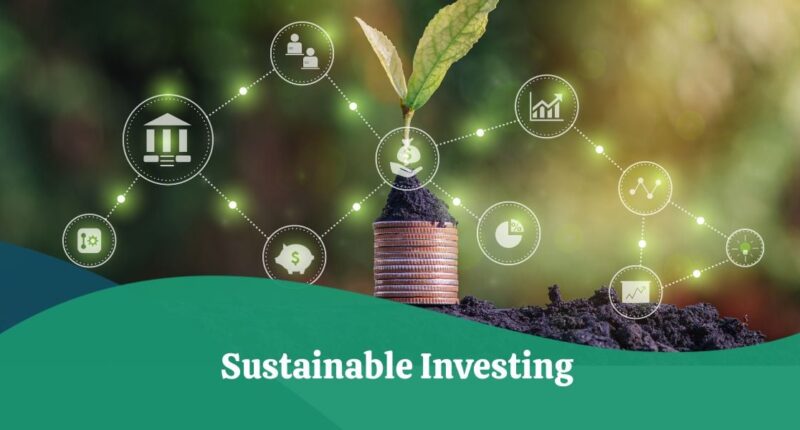A New Era of Investment Values Aligning Wealth with World Impact
Understanding the Shifting Landscape Where Profit Meets Purpose in Modern Finance
The world of finance is experiencing a profound shift these days. Investors are increasingly looking beyond traditional financial metrics, seeking to align their capital with their values and contribute positively to global challenges. This evolution has propelled Sustainable and ESG (Environmental, Social, and Governance) investing from a niche concept to a mainstream cornerstone of smart portfolios. It reflects a growing recognition that companies performing well on ESG factors are often better managed, more resilient, and ultimately, more sustainable in the long run. This isn’t just about ethical considerations; it’s about sophisticated risk management and identifying long-term growth opportunities that emerge from a more responsible approach to business.
Decoding ESG Factors The Triple Bottom Line for Savvy Investors
Defining the Pillars of Environmental, Social, and Governance in Investment Analysis
At the heart of sustainable investing lies the comprehensive framework of ESG factors. Environmental considerations encompass a company’s impact on natural systems, including carbon emissions, resource depletion, pollution, and climate change mitigation strategies. Social factors delve into how a company manages relationships with its employees, suppliers, customers, and the communities where it operates, covering aspects like labor practices, diversity, human rights, and product safety. Governance refers to a company’s leadership, executive pay, audits, internal controls, and shareholder rights. Savvy investors now understand that a company’s performance across these three dimensions provides crucial insights into its operational efficiency, risk exposure, and long-term viability, making ESG analysis an indispensable part of due diligence.
Unlocking Impact Investment Opportunities Driving Tangible Change with Capital
Exploring Avenues for Direct Positive Impact Through Strategic Financial Allocations
Beyond simply avoiding “bad” companies, sustainable investing opens up a world of impact investment opportunities, allowing capital to actively drive positive change. This can range from investing in renewable energy projects and sustainable agriculture to supporting affordable housing initiatives and healthcare innovations. Impact investing seeks to generate measurable social and environmental benefits alongside a financial return, offering a compelling proposition for investors who want their money to work harder than ever. It’s about channeling funds into businesses and projects specifically designed to address pressing global issues, proving that doing good can indeed go hand-in-hand with doing well financially. This burgeoning sector provides a tangible way for investors to contribute directly to a more sustainable future.
Navigating the Greenwash Gauntlet Scrutinizing Claims for True Sustainability
Identifying and Avoiding “Greenwashing” to Ensure Authentic and Meaningful Investment Choices
As sustainable investing gains traction, so too does the risk of “greenwashing” – companies or funds making exaggerated or misleading claims about their environmental or social responsibility. In 2025, investors must develop a critical eye to scrutinize these claims and differentiate between genuine commitment and mere marketing ploys. This involves looking beyond surface-level narratives to examine a company’s core operations, supply chain, and measurable ESG performance data. Independent ratings, third-party certifications, and rigorous due diligence are essential tools in identifying truly sustainable investments. Avoiding greenwashing protects not only an investor’s capital from potentially overvalued or misaligned assets but also preserves the integrity of the sustainable finance movement, ensuring that capital flows to where it can truly make a difference.
Integrating Personal Values Making Investment Choices Reflect Your Principles
The Personal Journey of Aligning Financial Decisions with Core Ethical and Social Beliefs
Ultimately, a significant driver behind the rise of sustainable investing is the desire for individuals to integrate their personal values into their financial decisions. Investors no longer want a disconnect between how they live and how they invest. This means consciously choosing funds or companies that champion causes important to them, whether it’s climate action, gender equality, ethical labor practices, or community development. It’s about empowering investors to be stewards of their wealth, using their financial power to support businesses that reflect their ethical and social beliefs. This personal alignment adds a layer of satisfaction and purpose to the investment journey, transforming a purely financial endeavor into a powerful statement of personal conviction and responsibility.
The Future of Finance Sustainable Investing as the Default Approach
Why ESG Integration and Impact-Driven Portfolios are Poised to Become the New Investment Standard
Looking ahead, sustainable and ESG investing is not just a trend; it’s rapidly becoming the default approach for smart portfolios. Regulatory pressures, increasing stakeholder demands, and a growing body of evidence linking strong ESG performance with long-term financial resilience are cementing its place. As younger generations, highly attuned to social and environmental issues, accumulate wealth, the demand for truly sustainable investment options will only intensify. Financial advisors and institutions that fail to integrate ESG considerations risk becoming obsolete. The future of finance in 2025 and beyond will be characterized by portfolios that are not only designed for robust returns but also for positive impact, reflecting a holistic understanding of value creation in an interconnected world.











